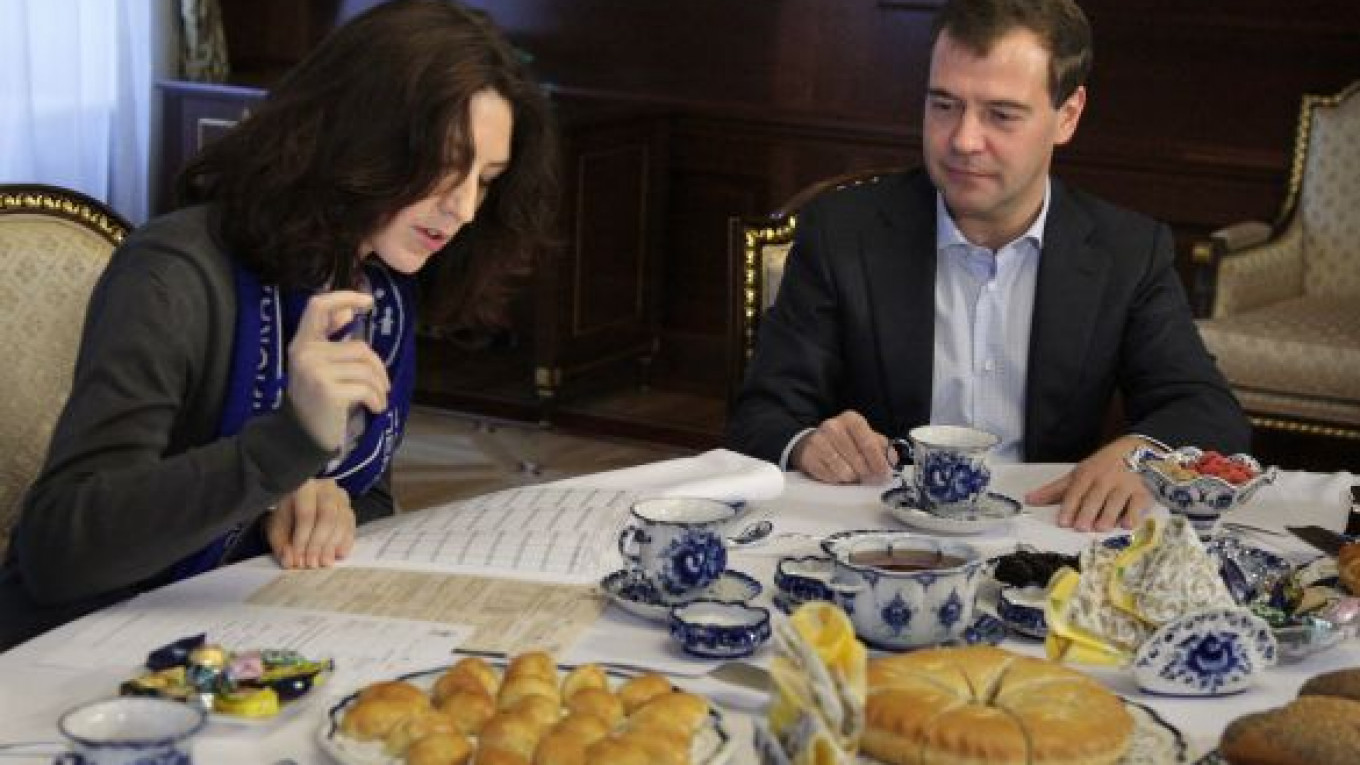Russia's population is shrinking, women still outnumber men by millions, and villagers are abandoning their homesteads to move to urban areas, according to preliminary census results released Monday.
The population stands at 142.9 million, down 1.6 percent, or 2.2 million, from 2002, when the last national census was held, State Statistics Service chief Alexander Surinov said in a report published by Rossiiskaya Gazeta.
He predicted in November, shortly after the census ended, that the population might actually see a 1 million uptick from 2002, a forecast that now stands debunked.
"The reduction was predictable," Natalya Zubarevich, a social policy expert with the Moscow State University, said by telephone, adding that Russia is experiencing the same depopulation trend as most developed countries.
The male population is 66.2 million, or 46.3 percent, while female is 76.7 million, or 53.7 percent, the report said.
About 61 percent of the population is concentrated in three of the seven federal districts: the Central, Siberian and Volga districts, Surinov said. The biggest population decrease, at 6 percent, was registered in the Far East district, which Zubarevich said is seeing a steady outflow of people to neighboring countries, including China.
On a provincial level, 63 regions saw a drop in population, while the other 20 saw a slight increase. The demographic situation improved mostly in ethnic republics, including Altai and the North Caucasus, as well as in the affluent cities of Moscow and St. Petersburg.
In the capital, the population grew 10.9 percent, bringing the number of officially counted Muscovites to 11.5 million.
More surprising was the Belgorod region in central Russia, where the population grew by 1.4 percent even though it dipped in neighboring regions.
This can be credited to a "wise regional migration policy" by Belgorod authorities, who manage to attract immigrants from former Soviet republics, Zubarevich said.
The urbanization trend persisted, though just barely, with 73.7 percent of the population concentrated in cities and towns, marking an increase of 0.4 percent since 2002. The rural population numbered 37.5 million, slightly more than a quarter of all Russians.
The census, carried out in October, cost the state 17 billion rubles ($600 million). Its results will be gradually released over the next three years, with the final report scheduled for 2013.
A 2009 report done jointly by the United Nations and Moscow's Higher School of Economics predicted that Russia's population would keep falling, reaching 116 million people by 2050. The trend is borne out by statistics so far.
A Message from The Moscow Times:
Dear readers,
We are facing unprecedented challenges. Russia's Prosecutor General's Office has designated The Moscow Times as an "undesirable" organization, criminalizing our work and putting our staff at risk of prosecution. This follows our earlier unjust labeling as a "foreign agent."
These actions are direct attempts to silence independent journalism in Russia. The authorities claim our work "discredits the decisions of the Russian leadership." We see things differently: we strive to provide accurate, unbiased reporting on Russia.
We, the journalists of The Moscow Times, refuse to be silenced. But to continue our work, we need your help.
Your support, no matter how small, makes a world of difference. If you can, please support us monthly starting from just $2. It's quick to set up, and every contribution makes a significant impact.
By supporting The Moscow Times, you're defending open, independent journalism in the face of repression. Thank you for standing with us.
Remind me later.






